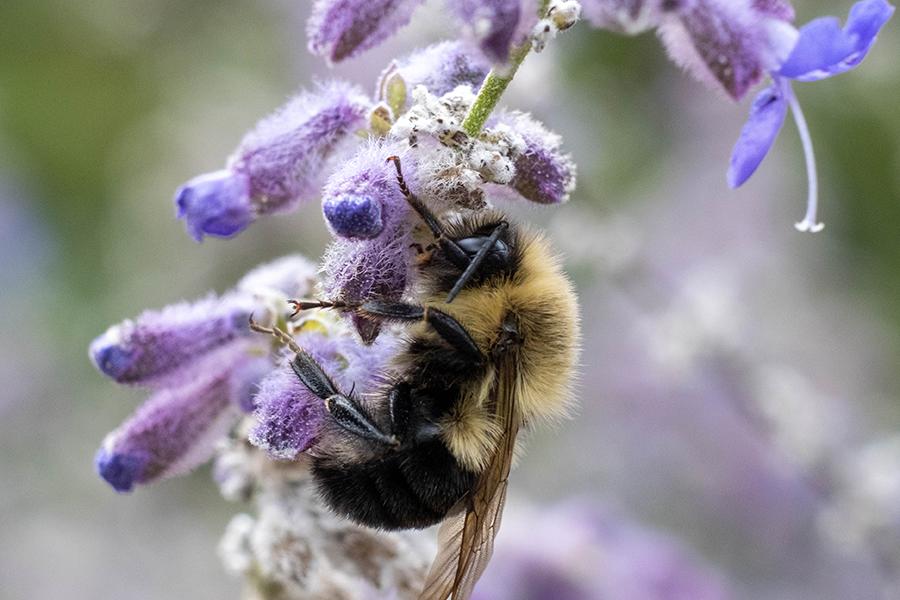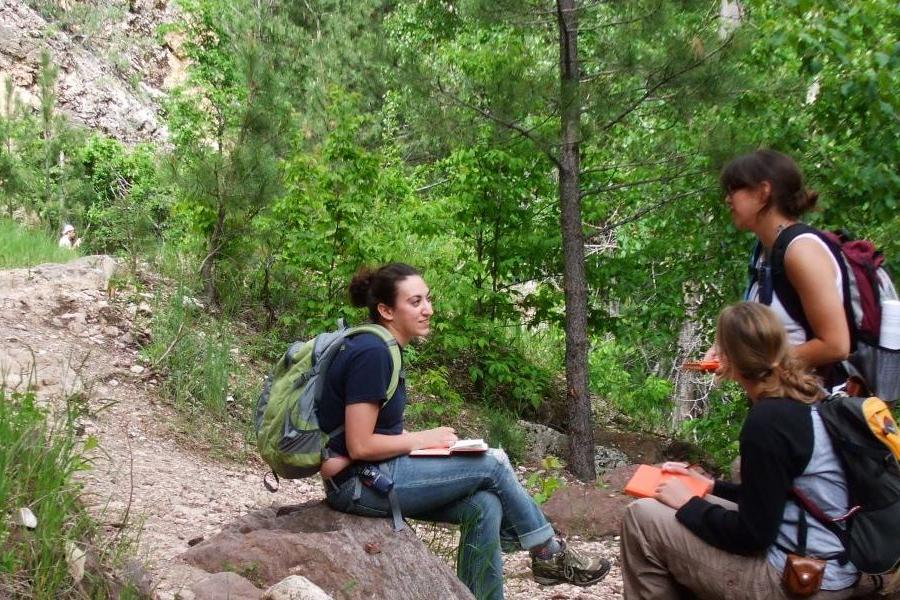National Science Foundation

New Publication in Physical Review X Reveals Surprising Connection Between Liquid Crystals and Metals
A groundbreaking study published today in Physical Review X, titled "Frank-Read Mechanism in Nematic Liquid Crystals," sheds light on a fundamental connection in the behavior of nematic liquid crystals and crystalline solids. Led by a team of researchers from Kent State University, the study reveals…
Kent State Biological Sciences Professor Helps Lead International Research Coordination Network to Study Insect Decline
Over half of the described species in the world are insects. Although many people think of insects as pests, they play vital roles and have a big impact on our invaluable ecosystems, as pollinators, helping break down wastes, and as an essential food source for many other organisms.

Geography Professor Selected for AGU’s National Diversity, Equity and Inclusion Leadership Academy
Scott Sheridan, Ph.D., professor and chair of the Department of Geography, in the College of Arts and Sciences at Kent State University, was recently selected to become an inaugural American Geophysical Union (AGU) LANDInG (Leadership Academy and Network for Diversity and Inclusion in the Geosciences) Academy Fellow.

New Collaboration to Provide Real-Time Data Exchanges for Astrophysicists
What happens when two neutron stars collide? What extreme densities and temperatures are reached? What new states of matter exist within the core of a neutron star? One Kent State College of Arts and Sciences theoretical astrophysicist, Veronica Dexheimer, associate professor in the Department of Physics, is diving headfirst into these questions as a co-principal investigator collaborating with her peers at multiple institutions on a recently funded cyberinfrastructure research grant project.

Kent State Mathematicians Win NSF Grant to Study Complex But Important Geometry Problems
The National Science Foundation believes Kent State University mathematicians Artem Zvavitch, Ph.D., and Dmitry Ryabogin, Ph.D., are having worthwhile conversations about some age-old unsolved problems, and it has provided support to keep the discussion going for another three years.
Physicists Analyze Organic Electrochemical Transistors for Medical Sensing
The medical and science communities are always seeking new ways to study and monitor organs and common diseases to improve human health and quality of life. While there is a seemingly endless need for versatile, low-cost, yet highly sensitive biochemical sensor devices, there are many step…
Kent State Biologist Joins Tennessee, Toledo Colleagues to Study Arctic Climate Change Effects
In early February, scientists reported the hottest temperature on record in Antarctica: 65 degrees Fahrenheit. Studies show climate change is disproportionately affecting the poles, warming them faster than anywhere else on Earth, and raising questions about what kinds of changes we can expect in arctic ecosystems as temperatures rise. A Kent State University biologist has teamed up with some colleagues in an inter-institutional effort to answer some of those questions.
NSF Grant Supports Kent State Researchers' Plan to Help Students Improve Study Habits
The “C” in “college” might as well stand for “cramming.” Studies show students are notoriously bad at adopting and adhering consistently to high-impact study habits that help them retain knowledge long-term. Researchers and faculty at Kent State Un…
NSF Grant Supports Kent State Researchers’ Plan to Help Students Improve Study Habits
The “C” in “college” might as well stand for “cramming.”
Studies show students are notoriously bad at adopting and adhering consistently to high-impact study habits that help them retain knowledge long-term.
Researchers and faculty at Kent State University, however, are collaborating on a new project to put a modern technological twist on a tried-and-true study tactic.
NSF Award Helps Kent State Anthropologists Expand International Partnership
The National Science Foundation (NSF) recently awarded Kent State a three-year, $298,000 International Research Experience for Students (IRES) grant that will allow graduate students to travel to Kyoto University in Japan to study primates and human evolution at the world-renowned Primate Research Institute.